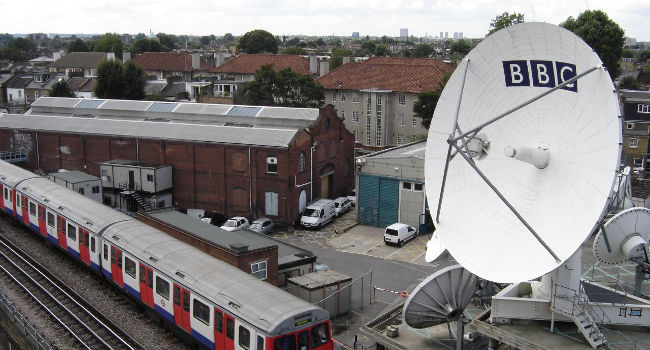The director-generalship of the BBC has likely never been a relaxing job, but in the last few years the forces besetting the national broadcaster have scarcely been greater.
Mired by its failure to stop the assaults of rapist and DJ Jimmy Savile, controversy over its handling of the Scottish referendum and never-ending accusations from the Tories of its alleged bias against them, next year’s Charter Review to determine the Beeb’s future may be the most important in its history.
In a speech by Tony Hall at London’s Science Museum on Monday the director-general responded to many of the complaints against his organisation under a plan for an “Open BBC”, with many of the measures proposed capable of radically altering the British media landscape.
Going deeper online and into mobile
The last decade has seen increasing estrangement from traditional television schedules as consumers access more media from their computers and from mobile devices, with streaming services such as Netflix in California also challenging old models.
Seemingly in response to this, Hall spoke of how the BBC News service will change from a “rolling news to streaming news” tailored to individual users, in what would be an overhaul of the current apps and websites currently in use by the corporation.
“Inevitably, this will be a more video based service, complemented by audio, graphics and text live from BBC News,” Hall said. “It will be the place to go to find out the facts and to understand the story behind them.”
Bolstering World Service with ‘Ideas Service’
The global reach of the BBC’s World Service, according to Hall accessed by 500m, is perhaps the greatest example of British soft power still in existence – or a tool of propaganda depending on your stance.
Despite past cuts claimed by the Beeb to have undermined its ability to spread British values abroad, the director-general wants to push back into some countries, including the Middle East, former Soviet states and India, as well as establish an “Ideas Service” to spread British culture.
“The Service will host the best content from the BBC but also from some of our country’s leading cultural institutions,” Hall said. “From the British Museum to the Royal Shakespeare Company, from the Edinburgh Festivals to the Liverpool Biennial, from this amazing institution the Science Museum to the University of Manchester.”
Saving local public service journalism
Whilst no news groups (barring Private Eye, perhaps) have been unmoved by the digital age, local journalism has been ravaged, and the BBC much criticised for undermining regional news groups’ ability to compete commercially.
 Some dispute that the BBC’s regional output is to blame for the decline, but the Beeb has anyway committed to set aside funding to send 100 local journalists to courts, councils and public services, as well as making its audio and video available for use by local news groups.
Some dispute that the BBC’s regional output is to blame for the decline, but the Beeb has anyway committed to set aside funding to send 100 local journalists to courts, councils and public services, as well as making its audio and video available for use by local news groups.
“Local democracy really interests me,” Hall said. “I’ve seen for myself how important our local radio stations are, and I’m really proud of the way they serve their communities. But I now want us to go further.”
Addressing the Scottish question
The Beeb was pilloried by Scottish Nationalists over its handling of the referendum, with Glaswegian protestors calling for the now former political editor Nick Robinson to be sacked, and labelling the BBC the “British Biased Corporation”.
More recently Scottish first minister Nicola Sturgeon called for devolution of BBC Scotland, in line with many other powers being handed over to the parliament in Holyrood, Edinburgh following the Nats failure to win that poll.
Whilst being thin on details, Hall said: “As the pace of devolution quickens we will need to adapt our services – on television, online and radio – to ensure that they fully reflect, and are able to report, the increasingly divergent politics of the UK.”
Defending shows people actually watch
Unlike much of the British media the BBC is obliged to cover topics for obscure or narrow audiences, Inuit throat singing being one of the stranger examples of programmes put out by the corporation.
Whilst some complain at this eccentricity, others (large broadcasters and news groups among them) think that the Beeb should stick exclusively to public service and oddities whilst leaving popular shows such as Strictly Come Dancing to the likes if ITV or Channel 4.
Though Hall defended “programmes of distinction”, he also said that “being a public service broadcaster also means understanding what the public wants us to provide – a broad, popular, mainstream offering that makes people feel their licence fee has been well spent.”
…but Hall says the Beeb is not ‘expansionist’
All the above might lead some to conclude that the BBC is, in the words of chancellor George Osborne, “imperial in its ambitions”. But Hall rejects this claim, and points out that he is still due to cut 20 percent from its costs base in savings.
“Let me be clear, an Open BBC is a million miles away from an expansionist BBC,” he said.
“Indeed it is the polar opposite. It comes from the desire to partner and share. It comes from the recognition that technology gives us the opportunity to do things very differently. It comes from the belief that the BBC must do even more for Britain as a whole.”
A full copy of Hall’s speech can be viewed here.
Image Credit – BBC satellite in London, August 2004 by Peter Daniel
